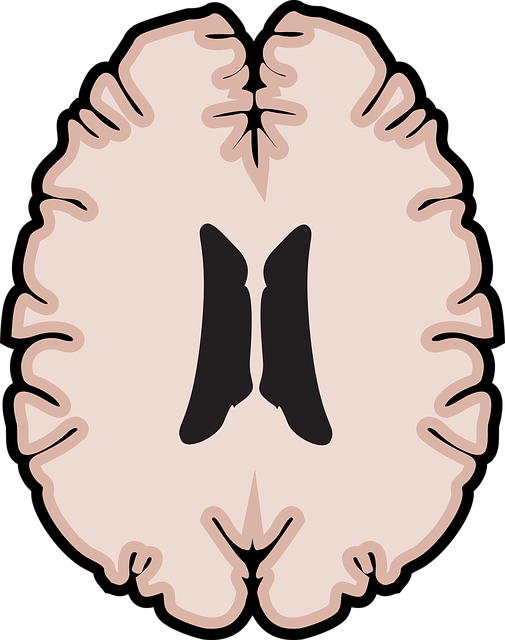Mindfulness meditation is a powerful tool in Castle Rock drug abuse-substance abuse therapy, promoting healing and self-discovery by focusing on the present moment with acceptance and curiosity. This practice enhances emotional regulation, fosters inner strength, and reduces stress, enabling individuals to manage disruptive thoughts and emotions without relying on substances. By creating dedicated meditation spaces and integrating mindfulness into daily routines through techniques like breath focus and journaling, individuals can optimize mental wellness and support long-term recovery from addiction. Community outreach programs play a crucial role in making these resources accessible, fostering supportive environments for lasting recovery.
Discover the transformative power of mindfulness meditation with our comprehensive guide, tailored to support Castle Rock drug abuse-substance abuse therapy. Understanding mindfulness as a foundational practice for recovery, this article explores its numerous benefits in enhancing substance abuse treatment. We provide practical tips on creating a sanctuary for your inner peace and offer diverse techniques to master mindfulness. Learn how to seamlessly integrate mindful moments into daily life, fostering long-term wellness and sustainable recovery.
- Understanding Mindfulness Meditation: A Foundation for Recovery
- The Benefits of Mindfulness for Substance Abuse Therapy
- Creating a Safe Space: Setting Up Your Meditation Corner
- Techniques and Exercises for Effective Mindfulness Practice
- Integrating Mindfulness into Daily Life: Sustaining Long-Term Recovery
Understanding Mindfulness Meditation: A Foundation for Recovery

Mindfulness meditation is a powerful practice that has gained significant attention for its potential to transform lives, especially those recovering from Castle Rock drug abuse-substance abuse therapy. At its core, mindfulness involves focusing on the present moment with openness and curiosity, acknowledging and accepting thoughts, feelings, and bodily sensations without judgment. This simple yet profound act paves the way for healing and self-discovery.
By cultivating mindfulness, individuals can develop inner strength and resilience, essential tools in managing stress reduction methods. It enables them to create a healthy distance from disruptive thoughts and emotions, fostering a sense of calm and clarity. This practice is not just about calming the mind; it’s about understanding and embracing one’s experiences, which can lead to significant improvements in mental health and overall well-being. Moreover, healthcare provider cultural competency training recognizes mindfulness as a valuable tool for building strong therapeutic alliances, promoting empathy, and enhancing patient outcomes.
The Benefits of Mindfulness for Substance Abuse Therapy

Mindfulness meditation has emerged as a powerful tool within substance abuse therapy, offering significant benefits for individuals seeking recovery. By cultivating present-moment awareness, Castle Rock drug abuse clients can develop inner strength and resilience, essential for navigating the challenges of addiction. This practice encourages them to observe their thoughts and emotions without judgment, fostering self-compassion and a deeper understanding of their triggers.
Through regular mindfulness exercises, compassion cultivation practices, and risk management planning for mental health professionals, individuals in substance abuse therapy can enhance their emotional regulation skills. They learn to respond rather than react to stressful situations, reducing the urge to resort to substances as a coping mechanism. This, in turn, promotes healthier decision-making and supports long-term recovery, transforming lives previously hindered by addiction.
Creating a Safe Space: Setting Up Your Meditation Corner

Creating a safe space is an essential step in establishing a successful mindfulness meditation practice. Your meditation corner should be a tranquil retreat where you can escape the chaos of daily life and focus on your inner self. Consider transforming a quiet room or a dedicated area into your personal sanctuary. Keep it free from distractions like electronic devices, ensuring only the elements that nurture peace are present. Soft lighting, comfortable seating, and perhaps some calming scents can all contribute to crafting an environment conducive to mindfulness.
Think of this space as your castle against the storms of anxiety and stress. By setting aside a specific area for meditation, you’re taking charge of your mental health, much like Castle Rock Drug Abuse-Substance Abuse Therapy takes charge of recovery. This ritual of preparing your sanctuary can itself become a tool for inner strength development and mood management, allowing you to cultivate a deeper connection with yourself through mindfulness practices.
Techniques and Exercises for Effective Mindfulness Practice

Mindfulness meditation is a powerful tool for navigating life’s challenges and cultivating mental wellness. To practice effectively, individuals should explore various techniques tailored to their preferences and needs. One foundational exercise involves focusing on the breath—observing its natural rhythm without judgment. This simple act anchors the mind in the present moment, fostering a deeper connection with one’s inner self.
Additionally, integrating Mind Over Matter principles through journaling can significantly enhance mental wellness. Dedicating time to reflect upon thoughts and emotions in a dedicated Mental Wellness Journal provides clarity and promotes healthier coping mechanisms. By regularly documenting experiences, individuals gain insights into recurring patterns, enabling them to address underlying issues related even to substance abuse therapy in Castle Rock, ultimately fostering personal growth and resilience.
Integrating Mindfulness into Daily Life: Sustaining Long-Term Recovery

Integrating mindfulness into daily life is a key aspect of sustaining long-term recovery from drug abuse and substance addiction, as offered by Castle Rock Drug Abuse-Substance Abuse Therapy programs. It’s not just about sitting quietly for a few minutes each day; it’s about cultivating a mindset that promotes present-moment awareness and emotional regulation.
Mindfulness meditation practice, combined with mental wellness coaching programs and self-awareness exercises, becomes an effective tool in navigating the challenges of life without resorting to unhealthy coping mechanisms. Community outreach program implementation plays a vital role in making these resources accessible to those in need, fostering a supportive environment where individuals can learn, grow, and maintain their recovery journey over time.
Mindfulness meditation offers a powerful tool in the fight against substance abuse, as evidenced by its positive impact on Castle Rock Drug Abuse-Substance Abuse Therapy. By understanding the foundational concepts and creating a dedicated space for practice, individuals can harness the benefits of mindfulness to navigate their recovery journey. Effective techniques and exercises, combined with integrating mindfulness into daily life, foster long-term sustainability in recovery. This holistic approach empowers folks to embrace a healthier, more balanced future.














